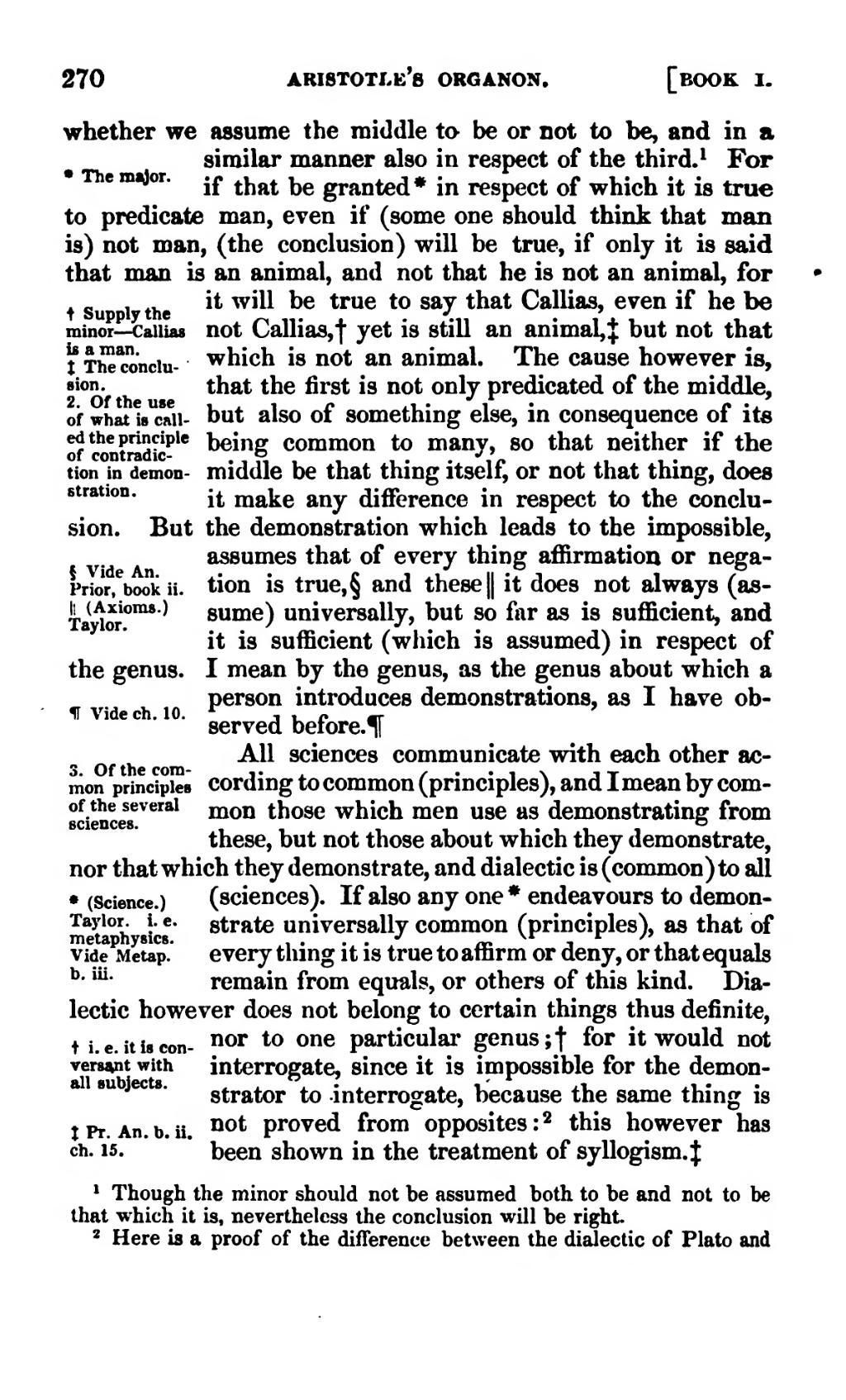whether we assume the middle to be or not to be, and in a similar manner also in respect of the third. For if that be granted in respect of which it is true to predicate man, even if (some one should think that man is) not man, (the conclusion) will be true, if only it is said that man is an animal, and not that he is not an animal, for it will be true to say that Callias, even if he be not Callias, yet is still an animal, but not that which is not an animal. The cause however is, that the first is not only predicated of the middle, but also of something else, in consequence of its being common to many, so that neither if the middle be that thing itself, or not that thing, does it make any difference in respect to the conclusion. But the demonstration which leads to the impossible, assumes that of every thing affirmation or negation is true, and these it does not always (assume) universally, but so far as is sufficient, and it is sufficient (which is assumed) in respect of the genus. I mean by the genus, as the genus about which a person introduces demonstrations, as I have observed before.
All sciences communicate with each other according to common (principles), and I mean by common those which men use as demonstrating from these, but not those about which they demonstrate, nor that which they demonstrate, and dialectic is (common) to all (sciences). If also any one endeavours to demonstrate universally common (principles), as that of every thing it is true to affirm or deny, or that equals remain from equals, or others of this kind. Dialectic however does not belong to certain things thus definite, nor to one particular genus; for it would not interrogate, since it is impossible for the demonstrator to interrogate, because the same thing is not proved from opposites: this however has been shown in the treatment of syllogism.
